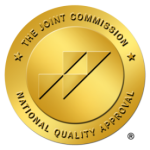First responders, whether it be firefighters, paramedics, police officers, or emergency medical personnel—face high-pressure situations on a daily basis. Their commitment to public safety often comes at a personal cost, particularly in the form of sleep deprivation. The demanding nature of their jobs, combined with irregular shifts and high-stress environments, leads to chronic sleep loss, which significantly increases the risk of substance abuse. This blog discusses the impacts of sleep deprivation within the first responder community and how it can lead to substance abuse: know how to help those struggling by recognizing the most common signs of addiction.
Understanding Sleep Deprivation in First Responders
First responders frequently work long shifts, overnight hours, and are required to be alert at a moment’s notice. According to research, sleep deprivation impairs cognitive function, decision-making, and emotional regulation. Chronic sleep loss is also linked to an increased risk of anxiety, depression, and post-traumatic stress disorder (PTSD)—all of which are prevalent among first responders.
Without adequate rest, the body’s ability to regulate stress diminishes, leading many first responders to seek external coping mechanisms. Unfortunately, some turn to alcohol, prescription medications, or illicit substances to manage stress, remain alert, or induce sleep when off duty.
How Sleep Deprivation Leads to Substance Abuse
Sleep deprivation for the average person can lead to a multitude of health issues over time, the added layer of being a first responder can significantly increase your chances of experiencing these health issues as well as substance abuse challenges. Learn how sleep deprivation in first responders can lead to addiction below:
Increased Stress and Anxiety
Lack of sleep heightens stress hormone levels, making it difficult for first responders to cope with the emotional toll of their work. Alcohol and sedatives may seem like a quick solution to unwind after a shift.
Reliance on Stimulants
Many first responders use caffeine or other stimulants to stay awake during long shifts. This can escalate to the use of stronger substances, such as prescription stimulants or illicit drugs, to maintain energy levels and combat fatigue.
Disrupted Sleep Patterns
Sleep deprivation alters the brain’s reward system, increasing cravings for substances that provide temporary relief. Many first responders experience insomnia due to shift work, leading them to use sleep aids or alcohol to fall asleep, ultimately resulting in dependency.
Self-Medication for PTSD and Depression
Trauma exposure is a major factor in substance abuse among first responders. Many use drugs or alcohol to numb the emotional pain associated with their job, which is worsened by chronic sleep loss.
Signs of Substance Abuse in First Responders
Recognizing the signs of substance abuse early can help you or your loved ones in preventing long-term consequences. Some common signs include:
- Behavioral Changes – One of the most prominent signs of substance abuse is increased irritability, mood swings, withdrawal from family or colleagues, and unexplained absences from work or gatherings.
- Physical Symptoms – Bloodshot eyes, tremors, slurred speech, or sudden weight loss are clear indicators that substance abuse may be occurring.
- Decline in Work Performance – If you or your loved one is having difficulty concentrating, increased errors, tardiness, or frequent disciplinary actions, substance abuse may be the cause.
- Increased Secrecy – First responders struggling with substance abuse will likely turn to hiding alcohol or drugs, avoiding social interactions, or become defensive when questioned about their substance use.
- Legal or Financial Issues – Unexplained financial troubles, arrests for DUI, or reckless behavior related to substance use.
If a first responder exhibits these signs, intervention and support from colleagues, supervisors, and mental health professionals are essential to prevent further decline and encourage long-term recovery.
The Impact of Substance Abuse on First Responders
Substance abuse among first responders can have devastating consequences, including:
- Impaired Job Performance – Fatigue and substance use can slow reaction times, impair judgment, and increase the likelihood of errors in critical situations.
- Mental Health Decline – Dependence on substances exacerbates underlying mental health issues, increasing the risk of burnout, depression, and suicidal ideation.
- Relationship Struggles – Addiction often strains personal relationships, leading to isolation, divorce, and broken family dynamics.
- Legal and Career Consequences – Many departments have strict substance use policies, and an incident involving drugs or alcohol could result in suspension, termination, or legal action.
Addressing the Crisis: Support and Prevention
Recognizing the link between sleep deprivation and substance abuse is the first step toward protecting first responders. Departments should promote policies that encourage better sleep schedules, napping opportunities, and education on sleep health. Access to counseling, peer support groups, and mental health services can help first responders process trauma in a healthy way. Encouraging mindfulness, exercise, and therapy as stress-management tools can reduce the reliance on substances. Additionally, agencies should foster a culture where seeking help is encouraged rather than stigmatized. While many of these things require vast changes across the board and cannot be done overnight, it is important to start the conversation. Agencies must acknowledge that there is a problem and work towards being part of the solution. Working proactively to ensure first responders are given ample time to rest can help reduce the risk of substance abuse in these departments.
Know When it is Time to Ask for Help
The brave men and women who serve as first responders should not have to sacrifice their well-being for their jobs. Addressing the correlation between sleep deprivation and substance abuse is crucial for their safety and effectiveness. By promoting better sleep practices, offering mental health support, and creating a non-judgmental environment for those struggling, we can help first responders thrive in both their professional and personal lives. Acknowledging that there is a problem is the first step and knowing that help is available is crucial. Revive Recovery Centers has a dedication program for first responders struggling with substance abuse. Contact our team today to learn your recovery options.





